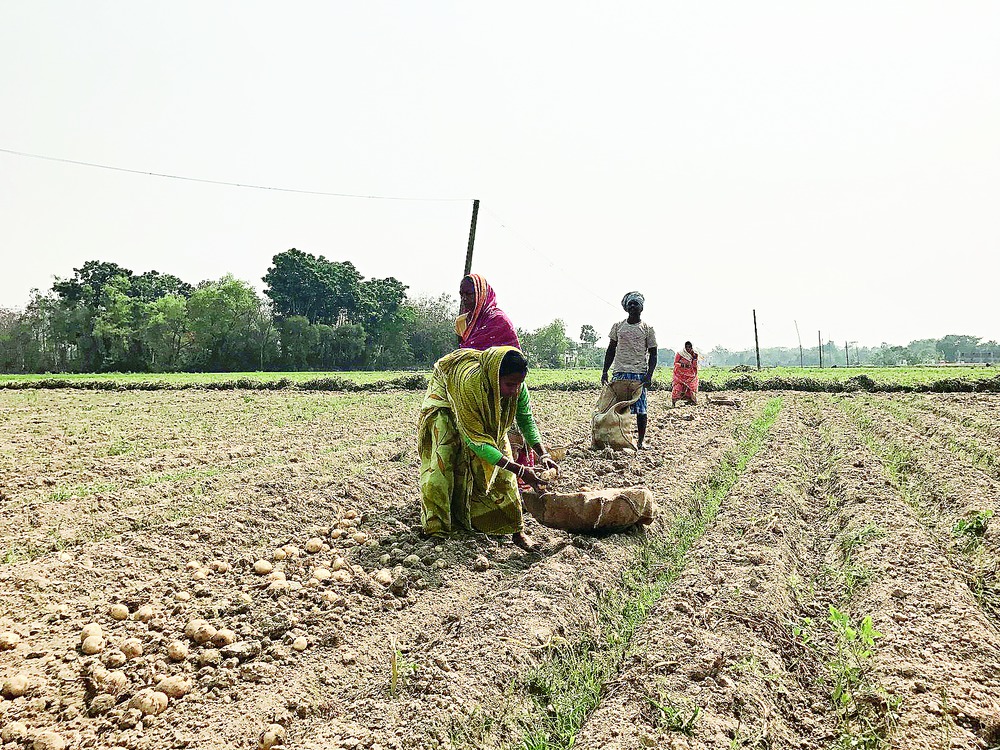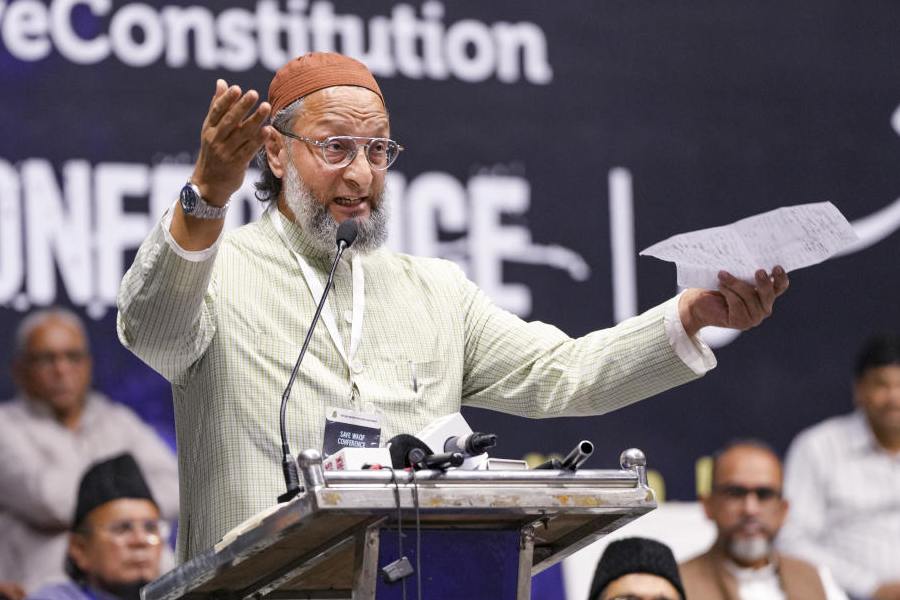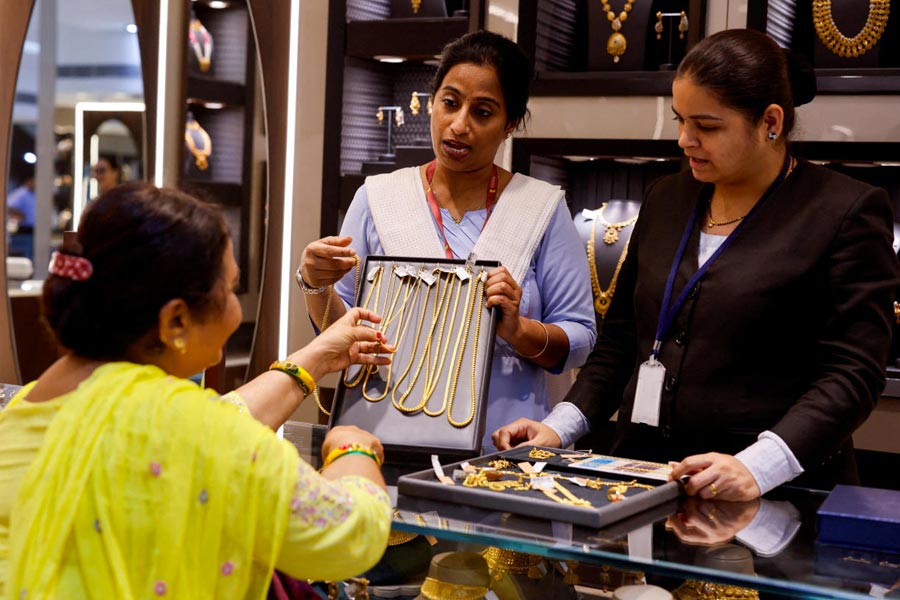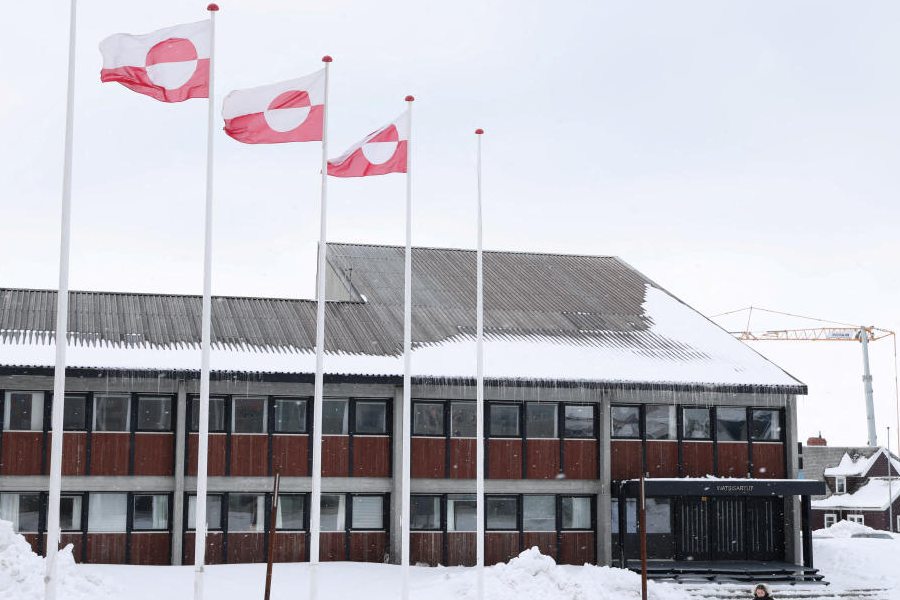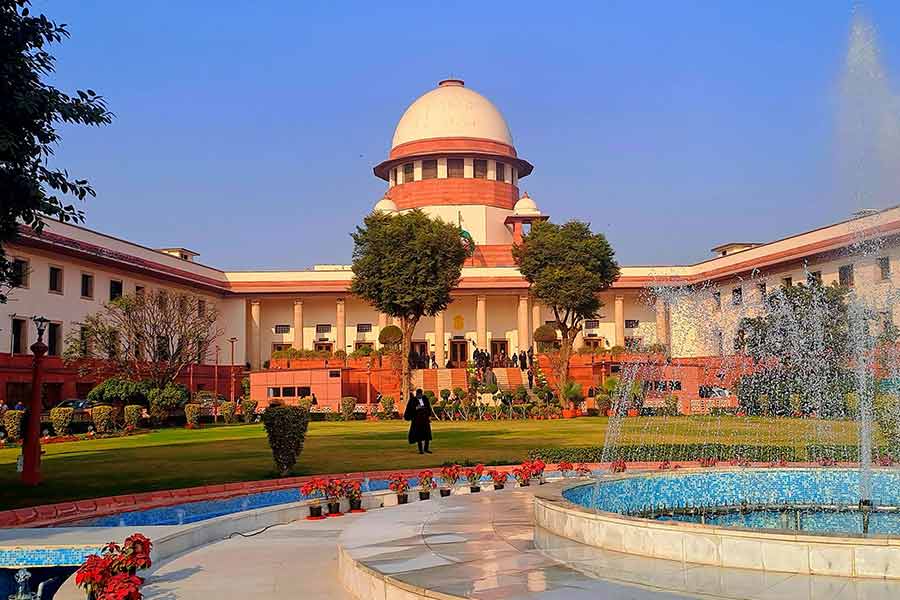
Anandapur (Arambagh), Mar. 4: Had Narendra Modi and Rahul Gandhi fought the farm-versus-factory debate over aloo (potato) in Anandapur village of Bengal, chances are that the Congress vice-president would have won by more than a wafer-thin margin.
For the hundred-odd farmers working for US multinational PepsiCo, growing the right variety of potato is probably the most crucial step in a long process that culminates in factories churning out munchies.
During an election rally in poll-bound Uttar Pradesh earlier this week, Prime Minister Modi had taken a dig at Rahul, who had in the past echoed farmers' demand to set up a potato factory for them.
"You are demanding a factory of aloo... but I am an Opposition leader. I can't take decisions. I can't put up an aloo factory," Rahul had said during his kisan yatra last year.
Without naming Rahul, Modi said at a rally this week that potato grows in fields, not in a factory. "You tell me whether aloo grows in the factory or field. You know but he does not know," the Prime Minister had said.
But Rahul probably meant potato processing, which Pepsi is doing in Bengal.

Growing the special process grade potato has saved at least 10,000 farmers this year from a price crash that the regular jyoti variety suffered because of a bumper crop.
Compared to Rs 400 a sack (50kg each) for process potato that Pepsi is offering farmers at Anandapur in Hooghly, jyoti is selling at Rs 150 a sack from the field. That is because Pepsi had agreed on the price before the sowing season started in October.
Last year, the jyoti variety had fetched a better price than the process variety. But Asim Choudhury, a farmer in Anandapur, stuck to the corporate because of his experience the year before.
In 2015, he had decided to give Pepsi a break and gone back to growing the traditional variety. He lost Rs 18,000 a bigha.
"That taught me a lesson. I did not switch this year to jyoti even though there was a higher return in 2016. I have been proven right," Choudhury, who owns an acre, said.

The farmer is hoping to make a profit around Rs 18,000 a bigha on the crop he is harvesting now using a power tiller fitted with an attachment specially designed for potatoes.
He has rented the machine, as he did in October last year to prepare the field and sow the seeds. The mechanical intervention, which almost turned the farm to factory, saved him at least Rs 2,500 a bigha.
Chandicharan Mandal, a local handler or aggregator who has an agreement with Pepsi for cultivation of the process grade potato, had arranged the power tiller on rent with the company's help.
According to Jaideep Bhatia, agri-director of Pepsi India, there are 117 such aggregators in Bengal who in turn work with farmers.

"The state laws do not allow direct agreement with farmers like we do in Maharashtra. Even though a direct tie-up would have been more transparent, we are not complaining. We are working with the aggregators," Bhatia said.
Mandal said he was looking after 150 acres in the area, about 90km from Calcutta. He gets the seeds from Pepsi, arranges pesticides and fertilisers, and then gets power tillers on rent as most small farmers cannot afford to buy them.
"Working for Pepsi has proved remunerative if somebody sticks to the company for 3-4 years. Now with the big power tillers, we are trying to move towards more mechanisation. It is almost like a factory," Mandal said, holding a pack of potato chips sold under the Lays brand by PepsiCo in India.
His only grouse?
"We want more machines. Only a fraction of land can be harvested with this one. Please tell the company to get it next year. Everyone is asking for it," Mandal said, pointing to the tractor which can do in one hour what 10 people take a day to accomplish.
The correspondent's trip to Anandapur was sponsored by PepsiCo

